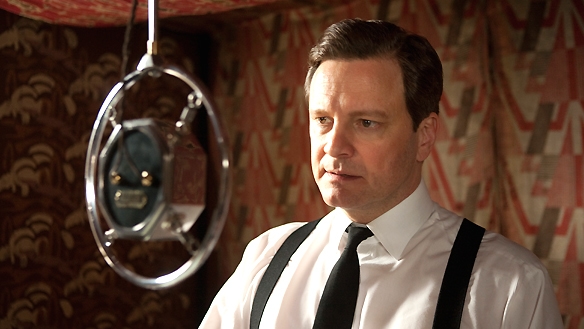The King’s Speech and the Empowered Patient
You may have seen the movie the King’s Speech. Within a half hour you know it’s got Academy Award written all over it. The story line is that the new king George VI suffers from a lifelong, serious stuttering disorder in an age when Radio and mass media are becoming the preferred way for Monarchs to communicate with their subjects. He tries all of the traditional medicine, University experts fit for a king, but none of them can help. Finally, the queen takes the empowerment route and searches for another solution, eventually finding a lowly commoner who is a self taught speech therapist. This unknown therapist helps the “King’s Speech”. The first meeting between King George and Lionel Logue (the therapist) is one of my favorite dialogs from the movie:
Lionel Logue: [as George “Berty” is lighting up a cigarette] Please don’t do that.
King George VI: I’m sorry?
Lionel Logue: I believe sucking smoke into your lungs will kill you.
King George VI: My physicians say it relaxes the throat.
Lionel Logue: They’re idiots.
King George VI: They’ve all been knighted.
Lionel Logue: Makes it official then.
I love these lines because they recognize that the medical orthodoxy of today is often tomorrow’s ridiculous statement. Practitioners that question medical orthodoxy have a very important function in society, as scientists that question scientific orthodoxy have always had in science. All of the greatest scientific discoveries of the last millennium came from scientists and physicians who didn’t tow the line and questioned the status quo. In medicine, empowered patients who have no options or no good options have sought out these doctors and medical providers for centuries. Elizabeth Cohen, recently writing for CNN on patient empowerment has understood how this movie represents patient empowerment being brought to Hollywood. However, there’s a serious threat to patient empowerment looming. I often see my colleagues buying into what I call a “New Scientific Extremism” hook, line, and sinker. Like a religious fanatic they cling to the message that randomized, double blinded controlled trials are needed to support every decision in healthcare. The problem is that no such data exists in between 50-80% of medicine, as most of what we do as doctors has no high level evidence support (I have blogged on the lack of evidence supporting common orthopedic procedures such as knee arthroscopy and shoulder rotator cuff surgical repair). Even when there are controlled trials supporting a medical decision, the individual patient may or may not fit within that decision matrix. In addition, when decision trees support every healthcare decision, what happens when the guys who made the decision trees were wrong? As a concrete example, when I left residency, we were told to place every patient with any type of pain on NSAID’s like Motrin and Alleve. Then newer NSAID’s came out and the drug companies pushed this message to just about every physician in the U.S. Turns out the new (and the old) NSAID’s like Bextra, Vioxx, and Celebrex were more dangerous than the mild problems they were often prescribed to help (these NSAID drugs increase cardiac sudden death risk from 82-202%).
I have more than 40 publications to my name, so I’m not a afraid of science or the scientific method and whole heartily support it everyday. However, like anything else, everything in moderation. Adopting a religious extremist’s zeal for the medical scientific method is as dangerous as any other type of extremism. Physicians on the front lines need to be able to think for themselves, look at all of the data, and chose the treatments most likely to help the patient. Centralized control of medicine is a bad thing and marginalizes the no option patients. More science is a good thing, but science as always has it’s limitations as it’s applied to the chaotic system known as the human body. In the end, patients need to be able to consult with their doctor, look at the data, and like the Queen in the “King’s Speech” make their own choices that may go counter to the advice of the “knighted” experts.

If you have questions or comments about this blog post, please email us at [email protected]
NOTE: This blog post provides general information to help the reader better understand regenerative medicine, musculoskeletal health, and related subjects. All content provided in this blog, website, or any linked materials, including text, graphics, images, patient profiles, outcomes, and information, are not intended and should not be considered or used as a substitute for medical advice, diagnosis, or treatment. Please always consult with a professional and certified healthcare provider to discuss if a treatment is right for you.
